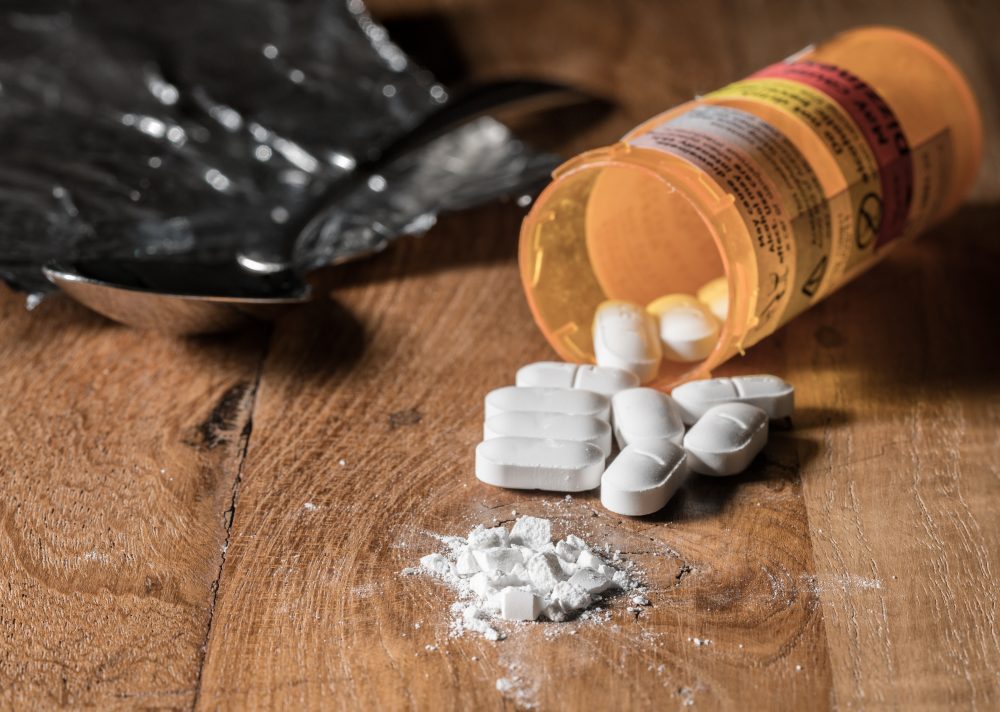Alcohol addiction

Written by:

Medically Reviewed by:
Last Updated:
April 10th, 2025
Alcohol addiction is a serious problem in the UK and is sadly the highest risk factor attributed to early mortality. Affecting millions of people each year, alcoholism often leads to serious health problems, financial ruin, and broken relationships. If you are worried about yourself or a loved one, it’s important to know the signs and symptoms of alcoholism and how to get help.

What is alcohol addiction?
Alcohol addiction, also known as alcoholism or alcohol use disorder, is a chronic and often progressive disorder that is characterised by four key aspects. These are:
- Cravings: experiencing a strong need to drink
- Loss of control: not being able to stop drinking once you have started
- Physical dependence: withdrawal symptoms such as nausea, sweating, tremors, and anxiety when not drinking
- Tolerance: needing to drink more alcohol to feel the same effects
Consuming more than the recommended fourteen units of alcohol each week is detrimental to your health and is considered alcohol abuse, however, abusing alcohol does not necessarily lead to addiction. Binge drinking is unhealthy, but if you are not physically dependent on the substance and can go for long periods before drinking alcohol again, it is unlikely you have an addiction.
With frequent consumption, you may build a tolerance to alcohol and your body may become dependent on it. Excessive alcohol consumption can also have psychological effects that can create emotional dependence. If you have become both physically and mentally dependent on alcohol, you are suffering from alcohol addiction.
If you are concerned about your alcohol intake, take the CAGE questionnaire to find out if you could have an alcohol use disorder.
Signs and symptoms of alcoholism
There are a number of signs and symptoms that can indicate someone has an alcohol use disorder, and these may continue to worsen over time. These include:
- Drinking more than intended or for longer than intended
- Inability to cut down or stop drinking despite wanting to
- Spending a lot of time drinking or recovering from drinking
- Neglecting other commitments and activities in favour of drinking
- Continuing to drink despite problems it is causing in your life
- Drinking in secret or hiding alcohol
- Feeling guilty or ashamed about your drinking
- Experiencing financial problems due to your drinking
- Needing to drink more alcohol to feel the same effects
- Experiencing withdrawal symptoms when you try to stop or cut down, such as anxiety, sweating, shaking, and nausea
If you have noticed any of these signs of alcoholism developing in yourself or a loved one, getting professional help as soon as possible can prevent further damage. At Sanctuary Lodge, our primary goal is to lead our clients to a happier and more fulfilling life, away from the detrimental effects of alcohol – we can help you to overcome alcohol abuse and addiction.
How does alcoholism develop?
Alcoholism does not discriminate and can affect people of all ages and socioeconomic classes. While there is no single cause of alcohol use disorder, there are a number of factors that can increase your risk of developing an issue. These include:
- Having a parent or close relative with an alcohol problem
- Experiencing stressful life events or trauma
- Having mental health problems such as anxiety, depression, or bipolar disorder
- Drinking heavily for a long period of time
- Starting to drink at an early age
Alcoholism is a complex condition that usually develops slowly over time, with the following stages typically occurring:
Stage 1…
The first stage of developing an alcohol addiction is usually occasional binge drinking and experimentation with alcohol. Many people, particularly young adults, experience this stage of alcohol consumption and don’t develop a tolerance, dependence or addiction.
Stage 2…
This stage involves frequent alcohol use that is above the NHS recommendation – in other words, alcohol abuse. You may also have started drinking alone, in situations where alcohol consumption is not appropriate, or to alleviate anxiety. Drinking alcohol to improve your mood or reduce stress indicates you might be forming an emotional or psychological dependence.
Stage 3…
As your condition progresses to the third stage, friends and family may start to become aware of your drinking habits and express concern. During this stage, you’ll likely downplay or try to hide the amount of alcohol you consume, or find excuses for your behaviour. You may be what’s considered a ‘functioning alcoholic’ and might still be able to maintain certain aspects of your lifestyle – for example, going to work.
Your drinking will, however, start to impact your work and relationships, and you may experience changes to your health, including facial redness, stomach bloating, shaking and sweating. It is possible that you’ll often pass out from alcohol and find yourself regularly hungover.
Stage 4…
The long-term effects of alcohol will start to become apparent in this stage, and the ability to function day-to-day decreases. Drinking alcohol will be your number one priority. If you have lost your job or relationships, the guilt, sadness or worry about these events can make your alcoholism much worse. You may begin to experience alcohol-related illnesses, including liver damage, and paranoia is also common.
You do not have to wait until stage four to get help; in fact, the earlier you seek treatment, the easier your recovery will be. Don’t wait for your drinking to cause irreparable damage to your life. If you feel like your alcohol consumption is starting to get out of control, contact us today to discuss your treatment options.
Am I enabling an alcohol addiction?
Most of the time, it is hard to know exactly how to help an alcoholic. A family member’s genuine desire to help or protect their loved one can sometimes lead to enabling behaviour and inadvertently prolonging the alcoholism.
An example of this might be if a person covers for their spouse’s lateness or absences from work because they been out drinking the night before. This enabling behaviour can unintentionally reinforce the person’s alcohol problem by taking away some of the negative consequences of their drinking.
If you’re wondering whether your behaviour is enabling an alcohol addiction, ask yourself the following questions:
- Do I make excuses for my loved one’s drinking?
- Do I ignore their drinking or try to underplay it?
- Do I cover up for them when they miss work or family events because of their drinking?
- Am I worried about how they will cope without alcohol?
- Do I feel like I need to drink with them to keep them happy?
- Do I buy them alcohol or help them get it?
- Do I protect them from the consequences of their drinking, such as paying off debts?
If you answered yes to any of the above questions, you might be enabling an alcoholic. In order to help your loved one, you can instead offer your support in recovery and treatment, set healthy boundaries, and allow the person to deal with the consequences of their drinking.
What is a functioning alcoholic?
A functioning alcoholic is somebody who is able to carry out usual day-to-day tasks, such as going to work, taking care of their children, paying bills, attending social activities, and maintaining hygiene, all while drinking excessively.
While they may be able to keep up appearances on the surface, underneath they will likely be struggling with their addiction. It is, however, markedly more difficult to identify there’s an issue, as the person may be able to disguise their alcohol use well.
Functioning alcoholics may be able to hold down a job, but their drinking will still take its toll. They may often drink before or during work, which can lead to them making mistakes, being less productive or taking more sick days. Of course, they will also experience alcohol-related health issues, especially if their abuse has been going on for some time.
Next steps
If you or a loved one needs help to overcome an alcohol addiction, the most effective course of treatment is alcohol rehab. Under the guidance of medical professionals at Sanctuary Lodge, you will be able to undergo an alcohol detox safely and comfortably, as well as have access to a variety of therapies, counselling, and workshops, all designed to treat alcohol use disorder effectively.
At Sanctuary Lodge, we are dedicated to your recovery. We have helped thousands of people through the recovery process, and we can help you too.











